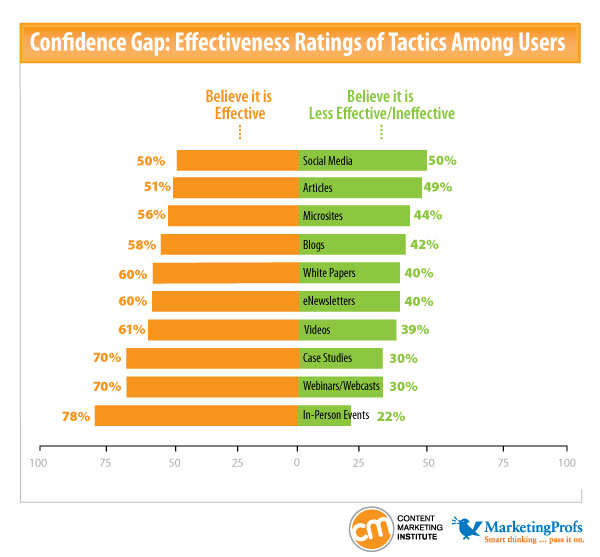You already know from the title this is going to be a rant, right? I've been using social media sites for business since before the turn of the last century – before the term `social media' was even coined. I kicked off my freelance writing career in 1999 with guru.com and have been hooked ever since. I've written about it a lot and I'm out here every day adding to the conversation. When someone tells me I'm doing it wrong, I get a little touchy.

Social media is full of marketing, media and creative people. It's the space I've inhabited, as well. While the group has its scraps, cat fights and the occasional good old-fashioned dust-up, mostly it's an orderly chaos with everyone following prescribed rules of online behavior. We all want to promote our stuff so we tend to be agreeable about the "do's and don'ts" as long as no one tries to hem us in too much.
Now I'm in a new sandpit with new players and lots of peripheral participants looking to get a toe in. It seems the weapon of choice is social media and they're not shy about issuing edicts on what and how I should be sharing information.
Commercial information
For the record, no one has an obligation to share commercial information just because you're online. You especially have no obligation to reveal financial details of your business if you've never broached the subject yourself. A couple weeks ago, someone I have never met or even heard of before posted this question in a discussion group geared towards people looking for employment:*
I am interested to know who has actually advertised upon COMPANY NAME and if you have had any success at all?
Nice try!
I give the person credit for trying and posted this reply:
You can look at the site to see who's advertising. If you want specific detail, I can have someone from our sales team contact you to discuss it. I'm not sure this is the right forum for us to be divulging that sort of information.
If you missed it, that was my not-so-subtle way of saying `You've got to be kidding.'
Round two
And then I received this nasty little lecture:
I do believe this is a group for your COMPANY thereby making it the most appropriate channel/forum to discuss my question. Linkedin is about open and honest communication and I know your COMPANY is in its infancy stage so information is key to allow your COMPANY to either crash like so many that have tried to compete with MASSIVE INTERNATIONAL COMPETITOR or grow.
I trust you will now be a bit more open minded and understand the point of linkedin!
Suffice it to say, my mind was anything but open at that point. What sort of person would expect anyone to share financial information in an online forum? Is it just me or could you hear a chair being pulled up for the latest small business crash-and-burn show?
How to deal with social media knuckleheads
What do you do in this situation? I followed my own advice from 3 Easy Steps for Dealing with Social Media Hecklers (after my blood pressure returned to normal). In short:,
- Acknowledge the complaint
- Show empathy
- Give them something to do
Here's my reply:
More than anyone, I appreciate the need for honest, open communication on LinkedIn or any social media channel. It's also important the discussions here are appropriate for the audience intended. As described in our Group Rules:
"This group is intended as a place for Job seekers, in particular, to find information, make contacts, network and to gain better insight into working in the XXXXXXXXX industry in Australia and throughout the world."
We absolutely value your contribution and hope you'll hang around. We also have pretty strong ideas about where commercial discussions belong. For instance, we don't advertise on our FREE INFORMATION SITE or our blog.
Thank you for acknowledging we're in our infancy. We definitely are. We also definitely have independent companies advertising with us. We know they're getting application success rates in line with SIMILAR BUSINESSES which far outstrip the rates seen with MASSIVE INTERNATIONAL BUSINESSES. We also know we have a lot of work ahead of us and hope the Australian XXXXXXX industry get behind us and support this initiative.
All the money (we) earn on this initiative will be reinvested into training, development, upskilling and reskilling of the Australian workforce specifically to tackle the burgeoning skills shortage. Be assured, we're in it for the long haul.
Again, if you'd like to speak to someone from COMPANY NAME directly, we'd be happy to give you a ring.
6 lessons learned
That put an end to it but there are several lessons to be learned here.
- It pays to write and rewrite your replies to a confrontation until you have something that's not emotive. It took me at least 3 tries in each instance to get the tone I wanted to portray in public.
- This exchange started and continued on a Friday evening. It's not unusual for heckling to come at times when people are relaxing with a drink (or ten) or recreational drugs.
- Make sure you have tightly written rules on your blog, discussion groups and forums. If you can quote them, you don't look like the heavy.
- Whatever you do, don't let some misanthrope pressure you into doing something you don't want to. This is the most important point of all — there's nothing that says you're obligated to divulge anything just because you're on social media
- Whenever someone quotes 'best practice' guidelines as part of a disagreement, they're usually trying to justify their own bad behavior.
- Other people are watching. I've had favourable comments about the way I handled this situation from people I had no idea were even looking at our discussion group.
One of the biggest concerns most businesses have about social media is someone harassing them or making derogatory remarks about their company. It's a rational concern but good business etiquette and sound communication skills will alleviate nearly any situation. You should never, ever, say or share something you don't want to. They might try, but they can't make you do it.
Have you had a similar experience? How did you handle it?
Subscribe
Subscribe here to have new posts from the Global Copywriting Blog delivered by email.
* I've intentionally removed the identifying terms in this story. I'm not so worried about protecting the guilty as preventing this post from showing up in search results for prospective customers of my new venture. The conflict is of no concern to them but does make an ideal discussion for this blog.
Image credit: Stuart Miles / FreeDigitalPhotos.net









Recent Comments